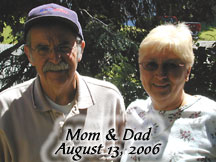I read Still Alice last night. For those of you not familiar with it, it's a novel written from the perspective of a 50-year old woman with early onset Alzheimer's.
I was expecting something more like Flowers for Algernon, especially as the title character starts off with a PhD and as a tenured teacher at Harvard. If I was writing such a novel (and I still might), I'd do it that way. If you haven't read Flowers for Algernon, it's a story about a mouse named Algernon who is made incredibly smart, and then a human named Charlie who goes from basically mentally retarded to genius by the same process, and it's all told in journal form by Charlie. The unreliable narrator is a great tool when properly done.
I am proud to say that I did not cry, even when she got diagnosed, until page 111, when she started talking about butterflies. My dad loved butterflies long before (and after) his diagnosis, and we covered his memorial picture board in butterfly cut-outs.
I don't think, however, that Alice took me into any uncharted waters. They were all familiar. She can't find the bathroom and pees on herself and feels shame. She forgets one of her daughters. She makes mistakes at work and doesn't realize her poor performance. She was never violent like my dad, but that's rare. I expected more frustration and more control issues.
Two things did bother me, that were left hanging. She forgets to go to her support group meeting, and she can no longer deal with her e-mail to respond to her EOAD friends. It doesn't seem like anyone ever takes her to the meetings or that she ever talks to those people again. Then she leaves the suicide instruction document open on her computer and no one ever remarks on it or looks for her vial of sleeping pills.
The suicide pact was probably the best part of the novel--her way of checking if she's still cognizant of her surroundings. She puts a series of questions on her Blackberry that she has to answer every morning at 8 a.m. and if she can't, she has to go to the Butterfly (suicide) document on her computer and follow the instructions immediately. At first the answers to the questions are detailed and crisp--the exact address of her home and office, the exact birthday of her daughter. Then they get less so, until finally she is simply saying what state her home and office are and getting the birthday completely wrong. But she doesn't even realize it, of course.
I didn't like the character of her husband very much.
His refusal after a while to exercise with her, the whole Sloan-Kettering thing--he was a jerk. Their marriage felt fake. I never thought they loved each other, there was no passion. They never had sex--implied or implicit, offscreen or on. And I would think that's an important part of EOAD--do you still have sex?
As far as a character study of her, and of the disease, it was fairly brilliant, but all the other characters were flat, cutouts moving through her world, even when she is barely diagnosed and showing symptoms.
I would give this book 4 out of 5. It's really good, but it could have been amazing.
I was thinking about the book after I finished it, and how Alice is treated by her co-workers and friends after she admits to her diagnosis, and I realized that it would be better to lie to the world and say "I have a brain tumor." My great-uncle had a brain tumor that caused dementia and everyone rallied around him. My dad had plain old dementia and he was a pariah.
(book cover from Amazon, butterfly montage from www.mgcpuzzles.com--we used it on my dad's board)
Living in the Shadow of Alzheimers
5 years ago


 i
i







